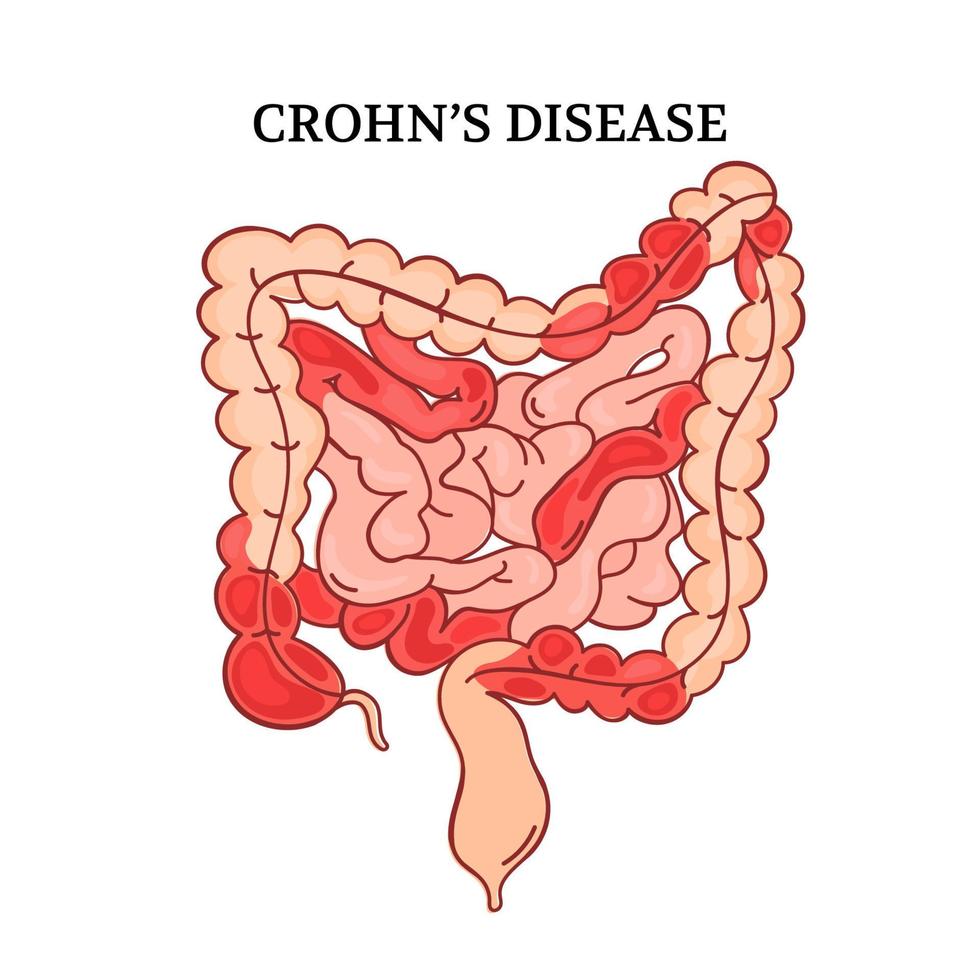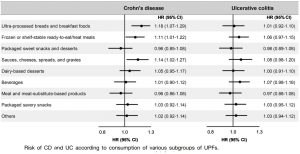| Original Article |
Question: What is the association between the consumption of UPFs and the risk of CD and ulcerative colitis (UC)?
Design/Method: A prospective cohort study was conducted based on the data from 3 ongoing prospective cohorts from 1986 to 2017. Cox proportional hazard models with adjustment for confounders were used to estimate the hazard ratios (HRs) and 95% confidence intervals (CIs) for CD and UC according to self-reported consumption of UPFs.
Setting: The United States
Patients/ Study community: 29-85 years old people
Results: Higher consumption of UPFs is associated with a significantly increased risk of Crohn’s disease (CD) but not ulcerative colitis.
Commentary:
| There are various ways that consuming UPF may affect how IBD develops: 1. UPFs replace UMPs; 2. UPFs contain additives that cause inflammation; 3. UPFs create leaky gut and modify the microbiota in the gut. In addition to numerous health advantages, people may significantly reduce their risk of CD by abstaining from UPF intake. |
Citation: Chun-Han Lo, Neha Khandpur, Sinara Laurini Rossato, and et all. Ultra-processed foods and risk of crohn’s disease and ulcerative colitis: a prospective cohort study. Clinical Gastroenterology and Hepatology. 2022; 20(6): 1323–1337
DOI: 10.1016/j.cgh.2021.08.031
https://pubmed.ncbi.nlm.nih.gov/34461300/
Topics: Emulsifier, Crohn’s Disease, Ultra-processed Foods, Ulcerative Colitis



